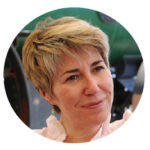November, 2018
By Isabelle Fran?ois,?CPS Partnership Community
 How many of you feel that we are at a critical turning point in our world? ?Upheaval has become a daily personal challenge for many, from professional to health, financial, and relationship issues. At the same time, it unleashes great potential for evolution, growth, breakthroughs, and awakening for humanity. Riding this wave will require leadership, but the question is what type?
How many of you feel that we are at a critical turning point in our world? ?Upheaval has become a daily personal challenge for many, from professional to health, financial, and relationship issues. At the same time, it unleashes great potential for evolution, growth, breakthroughs, and awakening for humanity. Riding this wave will require leadership, but the question is what type?
Let us launch a conversation on the type of leadership we need in today?s world, as much as in our personal lives. First, we need to get beyond old beliefs about leadership. Our societies often think about leadership in terms of knowledge, expertise. We seek the best, the most knowledgeable, the most skilled and capable persons to lead the way. Moreover, our understanding of leadership is connected to our understanding of exercising power. It is about doing, acting, accomplishing, forging, commanding, and controlling. There is, in fact, a deep assumption in our culture that leadership is embedded in masculine qualities, from laser vision to strategy, planning, action-oriented tasks, and ultimately winning.
“Coeur-rage” has more to do with rage of the heart than rage of the mind.
I would contend that leaders today no longer need to be the best and brightest. They have to, first and foremost, be comfortable with discomfort and multi-tasking. They need to be connected to many networks, not necessarily with an agenda in mind, but rather with a desire to nurture these relationships, and a willingness to serve the community. They need to be creative in a non-linear way. They have to step forward with courage, as in ?coeur rage.? This has more to do with rage of the heart than rage of the mind. The conditions are ripe for each and every one to make a quantum leap into the unknown, but who will lead and how?
Who will lead tomorrow is not an issue of men versus women, but leaders of tomorrow will need to master the courage to lead from their feminine qualities and energies. Various articles, workshops, and research have come up recently with lists of words best describing masculine qualities versus feminine energies. The masculine list would put forward words such as: external, mental, structure, goal, purpose-driven, protective, provider, ordered, linear, predictable; while the feminine would list words like: internal, emotional, flow, receptive, nurturing, chaotic, imperfect, non-linear, multi-tasking, unpredictable. Both men and women can tap into these energies. However, women may have an edge and certainly a responsibility to champion this type of leadership.
Masculine leadership will remain essential to succeed, to acquire, and to win. In today?s world, however, we will need to increasingly tap into the feminine energies of nurturing, growing, birthing, cultivating, and our leadership style will need to be sourced more and more from the feminine. Our world demands less ?winning? and more ?creating and connecting.?
How to bring about this new leadership ultimately rests on our ability to reach within ourselves, as opposed to acquiring new knowledge and skills. The answer does not lie out there. It sits inside, and requires an honest search deep down for authenticity and integrity. It demands that both men and women alike tap into a different source of power, connecting with their deeper desires and unique qualities, and stepping out of their comfort zone to lead from a place of vulnerability rather than from a place of strength. It will be challenging for men and women alike. However, women have a particular responsibility today in leading the way towards such transformative leadership. Most women know feminine leadership intuitively, but we have yet to harness it as a source of power, a new leadership style. This is the way to contribute our full potential, and reconnect with our environment, bringing authenticity and integrity to the work place, our personal lives, and to the world.
Isabelle Fran?ois is a writer, a public speaker, a teacher and a leadership coach. She has served as an international relations expert in government, international organizations, in non-governmental organizations, as well as in academia and think-tanks. She has also been self-employed and worked as a consultant providing policy advice, and volunteered in various nonprofit organizations. She received her Ph.D from Universit? de Montreal, Canada. She has lived and worked in Paris, Brussels, Montreal, Ottawa, Washington and Moscow. She speaks several languages and always lived between two continents. healinginternationalrelations.com?
Photo by mentatdgt from Pexels
![]()



Leave a Reply